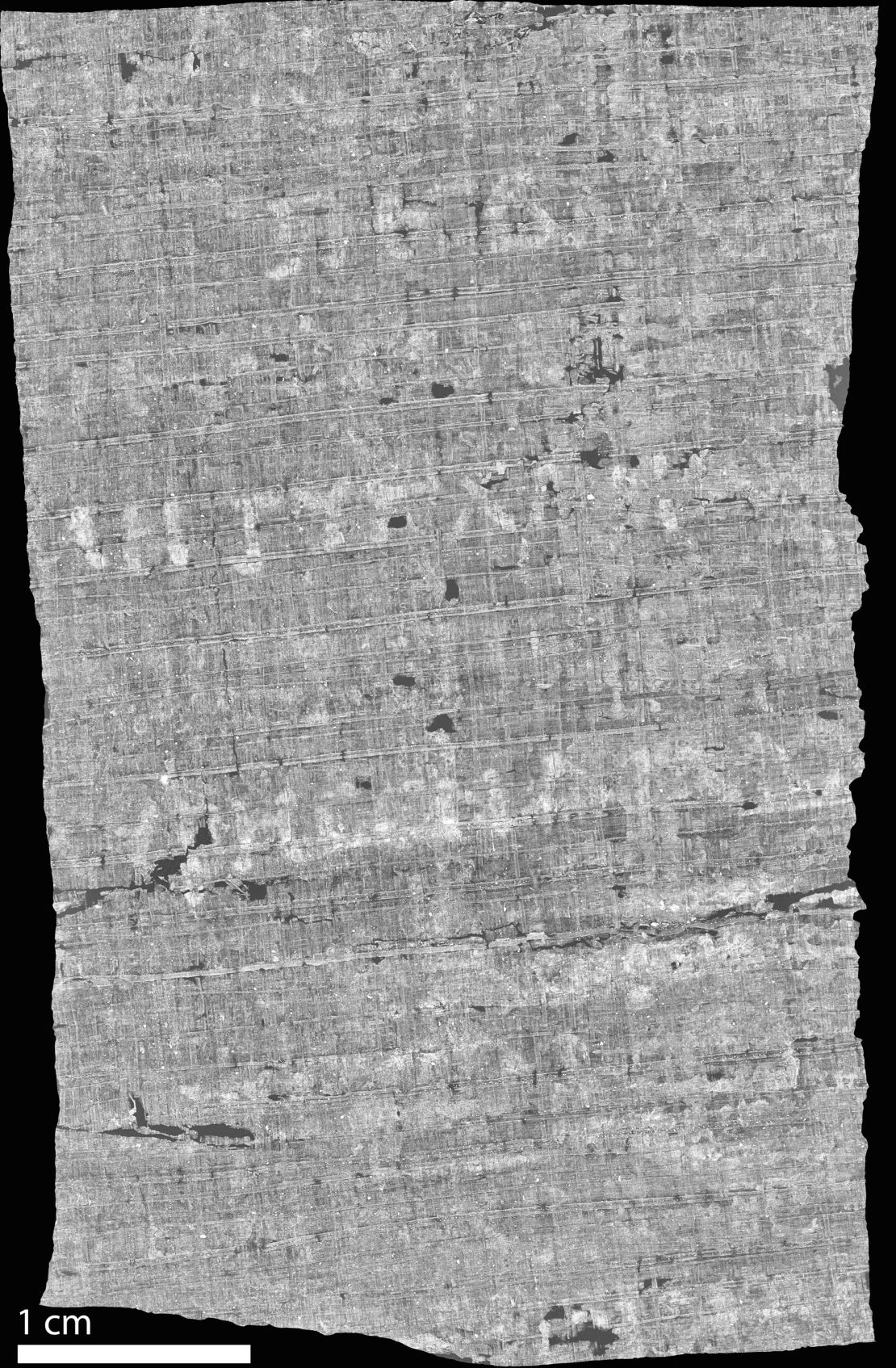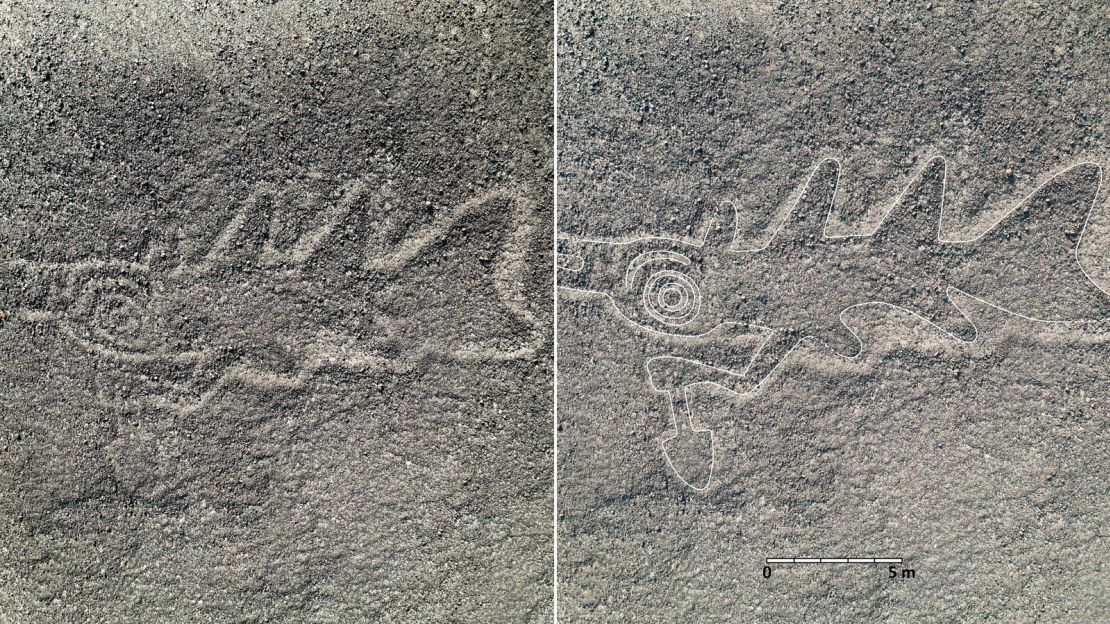Yes. over the last year or two I have been mostly overwhelmed by what I have learned regarding AI. On the one hand what I have learned is limitless in some ways. However, I also wonder what nefarious people and corporations and governments will do with all this research on human beings and everything else. So, just like the Internet, AI brings incredibly good things and incredibly bad things to life on earth in various different ways. And the problem really is: "WE don't know what directions it is going to go in both good and bad! And I would say: Expect AI literally everywhere, intellectually, psychologically and physically here on earth. Expect AI to be inside all organisms on earth both physically and psychologically too. This is what I have realized in the last 2 years especially.
begin quote:
‘A sort of superpower’: Unexpected revelations made possible by AI in 2024
‘A sort of superpower’: Unexpected revelations made possible by AI in 2024

Sign up for CNN’s Wonder Theory science newsletter. Explore the universe with news on fascinating discoveries, scientific advancements and more.
Charred to a crisp, the hundreds of brittle ancient scrolls would crumble if one were to attempt to unfurl them, and any trace of script would be nearly illegible. The Herculaneum scrolls, as they are known, still remain unopened, but thanks to the powerful tool that is artificial intelligence, their contents now lie within reach.
Using AI and high-resolution X-rays, a trio of researchers decoded in 2023 more than 2,000 characters from the rolled scrolls — the remarkable feat laid bare the first full passages from papyri that had survived the eruption of Mount Vesuvius in AD 79.
The artifacts, recovered from a building believed to have been the house of Julius Caesar’s father-in-law, form an unprecedented cache of information about ancient Rome and Greece.
Computer scientists who launched the Vesuvius Challenge, a competition designed to accelerate the deciphering process, hope that 90% of four scrolls will be unlocked by the end of 2024. The key challenge has been to virtually flatten the documents and distinguish the black ink from the carbonized papyri to make the Greek and Latin script readable.
“The AI is helping us amplify the readability of the evidence of the ink,” said Brent Seales, a professor of computer science at the University of Kentucky who has been working to decode the scrolls for more than a decade. “The evidence for the ink is there. It’s buried and camouflaged in all of this complexity that the AI distills and condenses.”
The project is one compelling example of the growing utility of artificial intelligence, which came of age in 2024 with the Nobel committee recognizing AI’s development and application in science for the first time: The physics prize recognized John Hopfield and Geoffrey Hinton for their fundamental discoveries in machine learning, paving the way for how artificial intelligence is used today.

A fuzzy and often overhyped term, AI aims to mimic human cognitive functions to solve problems and complete tasks. Artificial intelligence encompasses a range of computational techniques: using data sets to train and improve machine learning algorithms and enabling them to spot patterns and inform predictions.
Some AI tools can pose risks, such as systems used in hiring, policing and loan applications that replicate bias, because they may be trained on historical data reflecting prejudiced ideas, for example, on sex or race, that ultimately result in discrimination.
AI has transformed the landscape of scientific discovery, with the number of peer-reviewed papers using AI tools increasing sharply since 2015 and those that use AI methods more likely to be among the most cited. More than half of 1,600 scientists surveyed by Nature expected AI tools to be “very important” or “essential” to the practice of research. However, the UK’s Royal Society, the world’s oldest academy of sciences, has warned that the black-box nature of many AI tools is limiting the reproducibility of AI-based research. For Seales, though, it’s a powerful instrument deployed wisely that has generated dramatic results.
“AI is a field of computer science designed to try to solve problems in ways that we thought only humans could solve problems,” Seales said. “I think of the kind of AI we’re using as a sort of superpower making you able to see things in data that with human eyes you wouldn’t be able to see.”
The Vesuvius Challenge is just one way the fast-moving field has shaken up science and revealed the unexpected in 2024. AI is also advancing scientists’ understanding of how animals communicate in the ocean depths, helping archaeologists find new sites in remote and inhospitable terrain, and solving some of biology’s greatest challenges.
Decoding whalespeak and other animal languages
Researchers know the enigmatic clicks made by sperm whales vary in tempo, rhythm and length, but what the animals are saying with these sounds — produced through spermaceti organs in their bulbous heads — remains a mystery to human ears.
Machine learning, however, has helped scientists analyze nearly 9,000 recorded click sequences, called codas, that represent the voices of approximately 60 sperm whales in the Caribbean Sea. The work may one day make it possible for humans to communicate with the marine animals.
The scientists examined the timing and frequency of codas in solitary whale utterances, in choruses, and in call-and-response exchanges between the marine giants. When visualized with artificial intelligence, previously unseen coda patterns emerged in what the researchers described as akin to phonetics in human communication.

In all, the program detected 18 types of rhythm (the sequence of intervals between clicks), five types of tempo (the duration of the entire coda), three types of rubato (variations in duration), and two types of ornamentation — an “extra click” added at the end of a coda in a group of shorter codas.
These features could all be mixed and matched to form an “enormous repertoire” of phrases, the scientists reported in May. However, the approach has its limitations. While machine learning is adept at identifying patterns, it doesn’t shed light on the meaning.
A next step, according to the study, is interactive experimentation with whales, along with observations of whale behavior, which could be an important part of unraveling the syntax of sperm whale click sequences.
The approach could also be applied to vocalizations by other animals, Dr.
Brenda
McCowan, a professor at the University of California Davis School of
Veterinary Medicine, previously told CNN. She was not involved in the
study.
Finding archaeological sites
Meanwhile, on land, artificial intelligence is now turbocharging the search for mysterious lines and symbols etched into the dusty ground of Peru’s Nazca Desert that archaeologists have spent nearly a century uncovering and documenting.
Often only visible from above, the sprawling pictograms depict geometric designs, humanlike figures and even an orca wielding a knife.
A group of researchers led by Masato Sakai, a professor of archaeology at Japan’s Yamagata University, has trained an object detection AI model with high-resolution imagery of the 430 Nazca symbols mapped as of 2020. The team included researchers from IBM’s Thomas J. Watson Research Center in Yorktown Heights, New York.
Between September 2022 and February 2023, the team tested the accuracy of its model in the Nazca Desert, surveying the promising locations by foot and with the use of drones The researchers ultimately “ground truthed” 303 figurative geoglyphs, almost doubling the known number of geoglyphs in a matter of months.

The model was far from perfect. It suggested a staggering 47,000 potential sites from the desert region, which covers 629 square kilometers (243 square miles). A team of archaeologists screened and ranked those suggestions, identifying 1,309 candidate sites with “high potential.” For every 36 suggestions made by the AI model, the researchers identified “one promising candidate,” according to the study.
Nevertheless, AI has the potential to make huge contributions to archaeology, particularly in remote and harsh terrains such as deserts, even though the models are not yet entirely accurate, said Amina Jambajantsan, a researcher and data scientist at the Max Planck Institute of Geoanthropology’s department of archaeology in Jena, Germany.
Jambajantsan wasn’t involved in the Nazca research but uses an AI model to identify burial mounds in Mongolia based on satellite imagery.
“The problem is archaeologists don’t know how to build a machine learning model and data scientists, typically, are not really interested in archaeology because they can get much more money elsewhere,” Jambajantsan added.
Understanding the building blocks of life
AI models are also helping researchers understand life at the smallest scale: strings of molecules that form proteins, the building blocks of life.
While proteins are built from only around 20 amino acids, these can be combined in almost endless ways, folding themselves into highly complex patterns in three-dimensional space. The substances help form hair, skin and tissue cells; they read, copy and repair DNA; and they help carry oxygen in the blood.
For decades, decoding these 3D structures has been a challenging and time-consuming endeavor involving the use of fussy lab experiments and a technique known as X-ray crystallography.
However, in 2018 a game-changing AI-based tool arrived on the scene. The latest iteration of the AlphaFold Protein Structure Database, developed by Demis Hassabis and John Jumper at Google DeepMind in London, predicts the structure of almost all 200 million known proteins from amino acid sequences.
Trained on all the known amino acid sequences and experimentally determined protein structures, the database acts as a “Google search.” It provides access at the touch of a button to predicted models of proteins, accelerating progress in fundamental biology and other related fields, including medicine. The tool has been used by at least 2 million researchers around the world.
“It’s really a stand-alone breakthrough solving a traditional holy grail in physical chemistry,” Anna Wedell, a professor of medical genetics at Karolinska Institutet in Sweden and a member of the Royal Swedish Academy of Sciences, told CNN after Hassabis and Jumper were among the three winners of the 2024 Nobel Prize for chemistry.
The tool does have some limits. Attempts to apply AlphaFold to proteins based on mutated sequences, including one linked to early breast cancer, have confirmed that the software is not equipped to predict the consequences of new mutations in proteins.
AlphaFold is only the most high-profile of a number of AI tools being deployed in biomedical fields. Machine learning is accelerating efforts to compile an atlas of every single type of cell in the human body and discovering molecules that become new drugs, including a type of antibiotic that may work against a particularly menacing drug-resistant bacteria.
Mindy Weisberger and Taylor Nicioli contributed to this report
11 comments





No comments:
Post a Comment